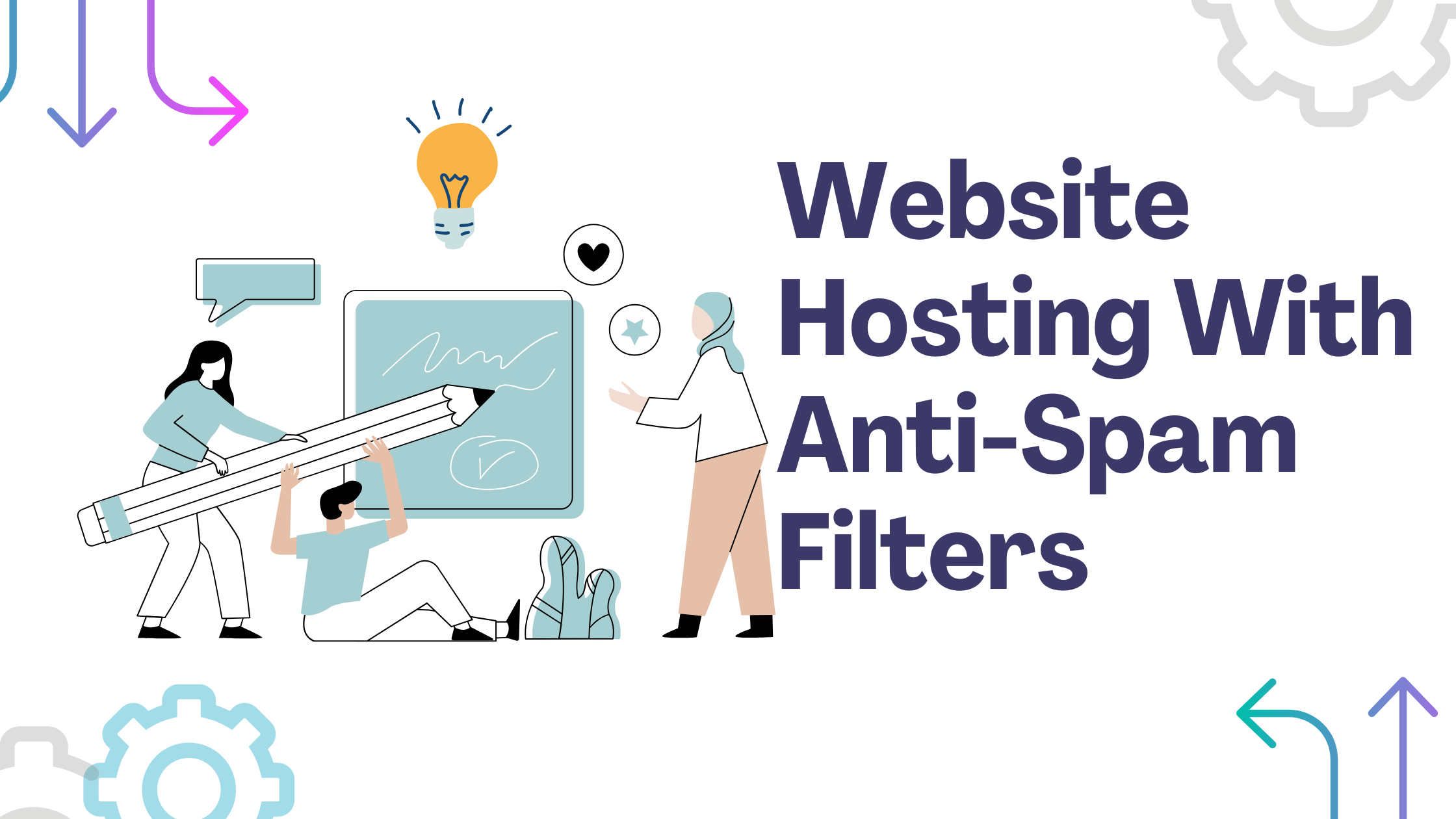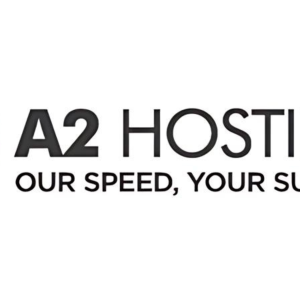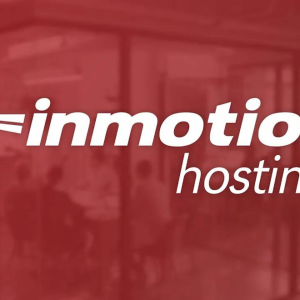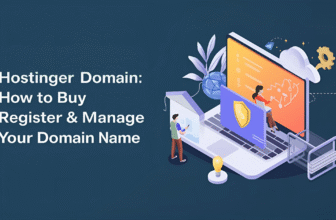
Spam emails can be a significant nuisance for website owners. Whether it’s through contact forms, comment sections, or email accounts, spam can overwhelm your inbox and lead to security vulnerabilities. In this article, we’ll explore website hosting with anti-spam filters to help you prevent these unwanted messages from cluttering your site.
Why Do You Need Anti-Spam Filters?
Spam can slow down your website, increase server load, and even open the door for security threats. Anti-spam filters help you:
- Prevent unwanted email traffic: Block spam emails before they hit your inbox.
- Enhance website security: Protect your website from malicious bots and attacks.
- Improve user experience: Ensure legitimate emails get through without sifting through spam.
Choosing the right hosting with integrated anti-spam features is key to keeping your website clean and secure.
Best Hosting Providers With Anti-Spam Filters
1. Bluehost
Bluehost offers built-in anti-spam protection with their hosting plans. They use tools like SpamAssassin to filter out unwanted emails. Prices start at $2.95 per month, which includes free anti-spam features on all plans.
- Leading web hosting provider since 2003
- 99.99% uptime guarantee and high performance
- Easy-to-use dashboard and one-click WordPress installation
- 24/7 customer support via phone, chat, and email
- Free SSL certificates and advanced security features
- Affordable plans for every budget
- Trusted by over 2 million websites worldwide
- Real customer testimonials praising reliability and support
2. A2 Hosting
A2 Hosting provides robust anti-spam protection with their Turbo plans. They offer integrated spam filters that automatically detect and block spam emails. Plans start at $2.99 per month and come with a 30-day money-back guarantee.
- Lightning-Fast Speed: 20x faster Turbo Servers for optimal performance.
- Reliable Uptime: 99.9% uptime guarantee ensures your site is always online.
- 24/7/365 Support: Guru Crew support available anytime you need assistance.
- Eco-Friendly: Committed to green hosting with carbon offsets.
- Versatile Plans: Offers shared, VPS, and dedicated hosting plans.
- Secure Hosting: Free SSL certificates and robust security features.
- Developer-Friendly: Supports multiple programming languages and free site migrations.
InMotion Hosting provides advanced anti-spam protection with tools like MailChannels and SpamExperts. Their plans start at $2.29 per month, and they offer automatic spam protection for both email accounts and website forms.
- Experience top-tier web hosting with InMotion Hosting
- Lightning-fast speeds and superior performance
- Robust security features to protect your website
- Award-winning 24/7 customer support
- Trusted by over 300,000 domains worldwide
- Choose from a range of hosting plans to suit your needs
- Eco-friendly initiatives and green data centers
- Join thousands of satisfied customers and unlock your online potential
How Anti-Spam Filters Work
Anti-spam filters work by analyzing incoming emails for specific spam characteristics, such as:
- Suspicious subject lines that may indicate spam.
- Excessive links in the email body.
- Known spammy IP addresses that are flagged in global spam databases.
These filters automatically tag or delete spam emails before they reach your inbox or website. Some hosting providers also allow you to customize filter settings to suit your needs.
Where to Buy and Pricing
Hosting providers with anti-spam filters can be purchased directly from their websites. Bluehost, A2 Hosting, and InMotion Hosting all offer various plans depending on your needs. Pricing generally starts around $2.95 to $3.99 per month, with many providers offering discounts for the first term of service.
Conclusion
For website owners, choosing hosting with anti-spam filters is a crucial decision to ensure a seamless experience. With providers like Bluehost, A2 Hosting, and InMotion Hosting, you can keep your website secure and your inbox free of spam, without worrying about complicated configurations. Review the pricing and available features to find the best hosting solution for your needs.
FAQs on Website Hosting with Anti-Spam Filters
1. What are the key benefits of choosing website hosting with anti-spam filters?
Website hosting with anti-spam filters provides several benefits:
- Increased productivity: By reducing spam emails, you save time that would otherwise be spent sorting through irrelevant messages.
- Enhanced security: Spam filters help block phishing attempts, malware-laden messages, and other malicious content.
- Better server performance: Reducing spam traffic ensures optimal use of server resources.
- Improved email deliverability: Legitimate messages are more likely to reach their intended recipients without being overshadowed by spam.
2. Can anti-spam filters block legitimate emails?
While anti-spam filters are designed to accurately identify and block spam, there’s a small chance they might misclassify legitimate emails as spam (false positives). Most hosting providers allow users to adjust filter settings or whitelist trusted senders to minimize this risk.
3. What technologies do anti-spam filters use to detect spam?
Anti-spam filters use a variety of technologies, including:
- Pattern recognition: Identifying common spam patterns such as excessive links, suspicious phrases, or mismatched headers.
- Blacklist databases: Checking against global lists of flagged IP addresses or domains known for sending spam.
- Heuristics: Evaluating email content for spam-like characteristics based on predefined rules.
- Machine learning: Analyzing historical email data to improve spam detection over time.
4. How do hosting providers integrate anti-spam filters into their services?
Hosting providers integrate anti-spam filters into their services by including tools such as SpamAssassin, MailChannels, or SpamExperts in their hosting plans. These tools operate at the server level, filtering emails before they reach your inbox or website. Some providers also allow users to configure and manage spam settings through their control panel.
5. Do anti-spam filters work on contact forms and comments as well?
Yes, many hosting providers extend spam protection to contact forms and comment sections. These features typically work by using CAPTCHA systems, form validation, and bot-detection algorithms to block automated spam submissions.
6. Are there additional tools to enhance spam protection for websites?
Apart from hosting-integrated anti-spam features, website owners can use:
- Third-party plugins: Tools like Akismet and reCAPTCHA are effective for WordPress sites.
- Custom email filters: Set up additional rules for sorting emails.
- DKIM, SPF, and DMARC records: These email authentication protocols help verify the legitimacy of emails.
7. How do anti-spam filters affect website performance?
Anti-spam filters improve website performance indirectly by reducing the server load caused by handling and processing spam emails. This can result in faster website response times and more efficient use of server resources.
8. What is the difference between free and paid anti-spam solutions?
Free anti-spam solutions typically offer basic protection and may require manual configuration. Paid solutions, included in hosting plans or as add-ons, often provide advanced features like real-time updates, machine learning capabilities, and priority customer support. These advanced features ensure a higher level of accuracy and customization.
9. How can I monitor the effectiveness of anti-spam filters?
Most hosting providers offer tools or dashboards that allow you to monitor spam activity. Metrics such as the number of blocked emails, detected threats, and filter accuracy rates can help you evaluate the effectiveness of your anti-spam measures.
10. Are there alternatives to hosting providers with built-in anti-spam filters?
If your hosting provider does not include anti-spam filters, you can:
- Use standalone anti-spam software or services, such as Barracuda or Mimecast.
- Host your email through third-party platforms like Google Workspace or Microsoft 365, which include robust spam protection.
- Configure server-level email rules to filter spam manually, though this requires technical expertise.
11. What are the risks of not using anti-spam filters?
Not using anti-spam filters can lead to:
- Security vulnerabilities: Increased exposure to phishing attacks, malware, and data breaches.
- Reputation damage: If spam emanates from your domain, your IP address could be blacklisted.
- Operational inefficiencies: Time wasted sorting through spam and addressing issues caused by spam-related server strain.
12. Do anti-spam filters require frequent updates?
Yes, spam tactics evolve constantly, so anti-spam filters need regular updates to stay effective. Hosting providers typically handle these updates automatically. However, for standalone filters, you may need to apply updates manually or subscribe to update services.
13. Can anti-spam filters reduce bounce rates on emails?
Yes, anti-spam filters can improve email deliverability by ensuring that only legitimate messages are sent, reducing the likelihood of bounces caused by flagged content or improper email authentication.
14. How do I choose the best hosting provider with anti-spam filters?
Consider these factors:
- Type of spam protection tools: Ensure the provider uses reputable tools like SpamExperts or MailChannels.
- Customizability: Look for flexible spam settings.
- Additional security features: Features like DDoS protection and SSL certificates add value.
- User reviews: Research user experiences with spam management.
15. Is spam prevention included in all hosting plans?
Not always. While many hosting providers include basic spam protection in their plans, advanced features may only be available in premium plans. Check the plan details before purchasing.









